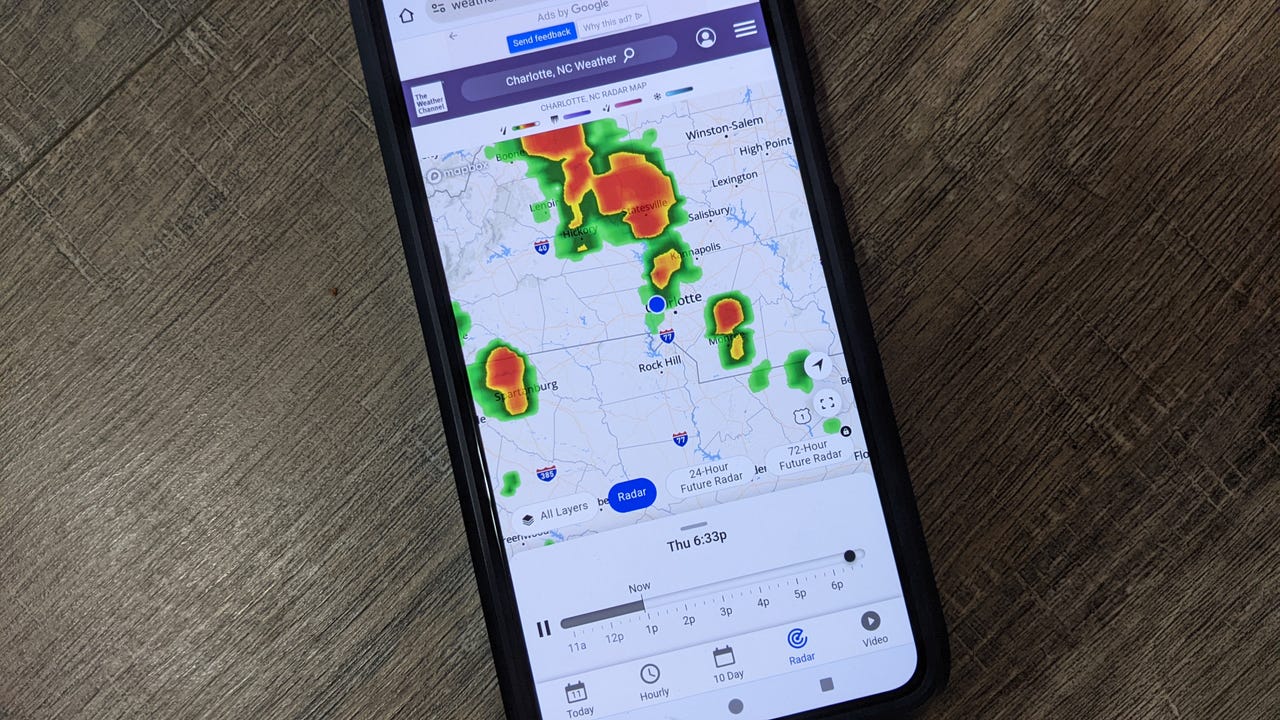
































The next time you check your local weather report, it might just be AI-generated.
In an announcement today, The Weather Company, parent company of The Weather Channel, debuted ReelSphere. The new tool -- which combines AI analytics with an existing tool, Max -- is designed to help local meteorologists focus on telling the big stories on TV instead of getting bogged down with minutia.
Also: AI is outperforming our best weather forecasting tech, thanks to DeepMind
Traditionally, part of a news meteorologist's job is taking the time to make videos and graphics that change for every hour or region.
With ReelSphere, local personalities can access highly accurate weather information and alerts that integrate with Max, the system that creates those green screen weather maps seen in local news. AI takes data from The Weather Company's API and other sources and automatically builds near real-time digital weather content that can be used as a brief snippet during a broadcast, for social media, or for a streaming channel.
The data shown adapts to conditions. If rain is expected, an area for precipitation levels appears. If the weather is expected to be clear, a beach forecast might be added for the weekend.
News stations can utilize an AI voice in English or Spanish, or the meteorologists can use their own.
Any script used to convey the information will still be written by humans, and while the content generated by ReelSphere requires little oversight, humans can intervene and edit the information if the AI gets something wrong.
Also: Amazon CEO: generative AI 'may be the largest technology transformation since the cloud'
A large language model will be used, but which one wasn't specified.
Local weather is the biggest draw for news stations, The Weather Company says, and people often use multiple resources for forecasts because they find they can't fully trust any one. In fact, according to a study by SmithGeiger, only 22% of respondents are satisfied with the forecasts and reports they receive.
If that weather forecast is fine-tuned to be hyperlocal, viewers are more likely to engage.
 Tags chauds:
Innovation et Innovation
Tags chauds:
Innovation et Innovation